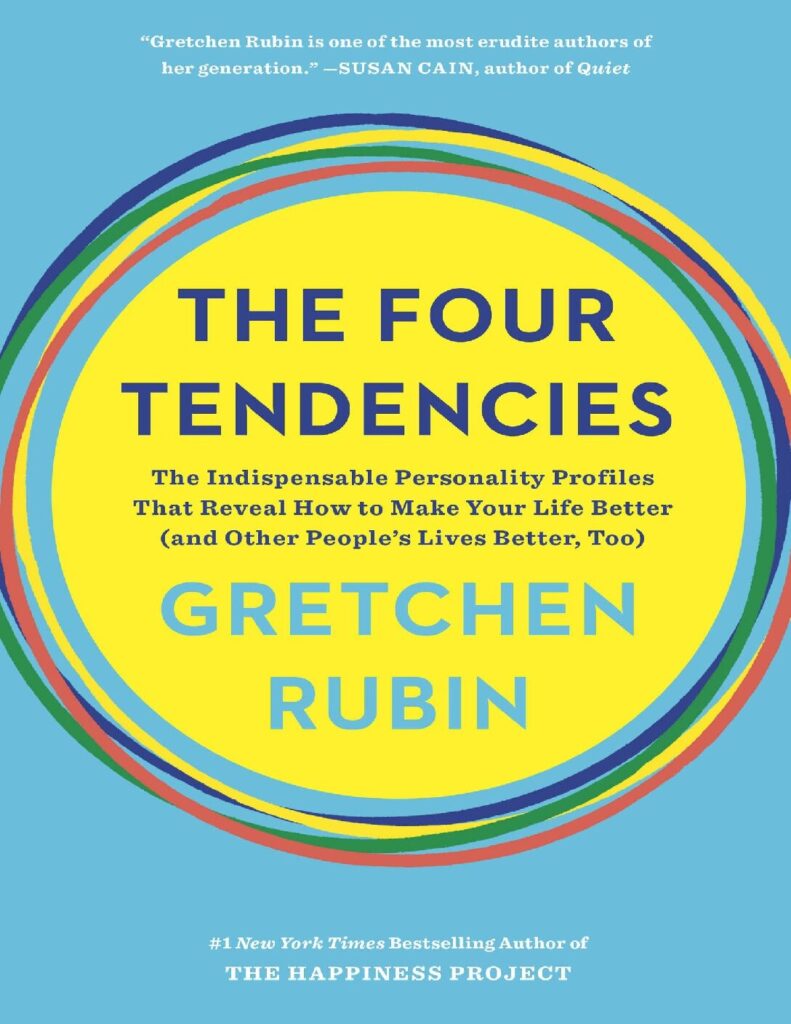summary of The Four Tendencies
The Four Tendencies by Gretchen Rubin is a groundbreaking book that divides people into four personality types based on how they react to both inner and outer expectations. People can become more self-aware, productive, and better at relationships by understanding these tendencies: Upholder, Questioner, Obliger, and Rebel.
The Four Tendencies:
People who uphold
Answer: It’s easy to meet both your own and others’ expectations.
Strengths: dependable and disciplined.
Challenge: You may struggle with being too rigid or experiencing burnout.
People who ask questions:
Answer: Don’t give in to outside expectations unless they make sense; willingly meet your expectations.
Strengths include the ability to think critically and work independently.
Challenge: You may tend to overthink or procrastinate.
People who have to:
Answer: You have a hard time meeting your expectations, but you are great at meeting other people’s.
Strengths: Can work well with others and are reliable.
Challenge: You may become too busy or feel busy or feel resentful.
Rebels:
Answer: Don’t give in to any expectations, whether they come from inside or outside.
Strong points: imaginative and free-spirited.
Challenge: You might have trouble adhering to rules or routines.
Usefulness:
Self-Improvement: Align your habits and goals with your personality, ensuring that others hold you accountable.
Relationships: To talk to people better, you need to know what they tend to do (for example, don’t boss Rebels around).
At work, put together teams that use each other’s strengths.
What Makes It Unique: It is based on Rubin’s extensive research into how people act.
Actionable: It has quizzes and personalized plans for each tendency.
Universal Relevance: Works for health, parenting, leadership, and more.
This resource is especially beneficial for anyone seeking to understand why they or others struggle with motivation.
Leaders, teachers, or coaches who want to motivate their teams or students.
Individuals who have a fondness for Rubin’s The Happiness Project or personality tests such as Myers-Briggs may find this resource useful.
Last thought: “The secret to a better life isn’t changing who you are; it’s knowing who you are.”
